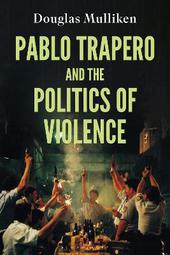
|
Pablo Trapero and the Politics of Violence
Hardback
Main Details
| Title |
Pablo Trapero and the Politics of Violence
|
| Authors and Contributors |
By (author) Douglas Mulliken
|
| Series | World Cinema |
|---|
| Physical Properties |
| Format:Hardback | | Pages:264 | | Dimensions(mm): Height 234,Width 156 |
|
| Category/Genre | Films and cinema
Film theory and criticism |
|---|
| ISBN/Barcode |
9781350163386
|
| Classifications | Dewey:791.430233092 |
|---|
| Audience | | Professional & Vocational | |
|---|
| Illustrations |
29 bw illus
|
|
Publishing Details |
| Publisher |
Bloomsbury Publishing PLC
|
| Imprint |
Bloomsbury Academic
|
| Publication Date |
10 February 2022 |
| Publication Country |
United Kingdom
|
Description
This innovative study finds that, through his unique representation of violence, Argentine director Pablo Trapero has established himself as one of the 21st century's distinctly political filmmakers. By examining the broad concept of violence and how it is represented on-screen, Douglas Mulliken identifies and analyzes the ways in which Trapero utilizes violence, particularly Zizek's concept of objective violence, as a means through which to mediate the political Through a focus on several previously under-studied elements of Trapero's films, Mulliken highlights the ways in which the director's work represents present-day concerns about social inequalities and injustice in neoliberal Argentina on-screen. Finally, he examines how Trapero combines aspects of Argentina's long tradition of political film with elements of Nuevo Cine Argentino to create a unique political voice.
Author Biography
Douglas Mulliken received his PhD from the School of Modern Languages and Cultures at the University of Glasgow, UK. He holds master's degrees from the University of Virginia and the University of Cape Town. In addition to his work on Argentina, he has published on Mozambican cinema.
ReviewsPablo Trapero and the Politics of Violence is the first serious examination of the oeuvre of one of Argentina most important contemporary filmmakers. The author offers meticulous analyzes of Trapero's films that cohere around the topic of violence, providing an exploration of Argentine culture that is both timely and well-conceived. -- Carolina Rocha, Southern Illinois University Ewardsville, USA
|